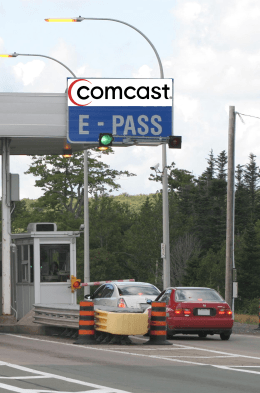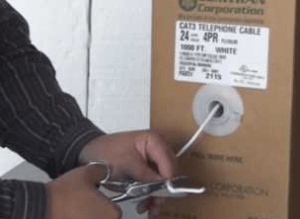 A small wireless ISP owner who regularly complains about Net Neutrality and an industry friendly group that opposes broadband oversight were the handpicked guests at a hearing held today to investigate Net Neutrality. Only one witness, Gigi Sohn from Public Knowledge was there to defend the important consumer net protection principle.
A small wireless ISP owner who regularly complains about Net Neutrality and an industry friendly group that opposes broadband oversight were the handpicked guests at a hearing held today to investigate Net Neutrality. Only one witness, Gigi Sohn from Public Knowledge was there to defend the important consumer net protection principle.
The hearing, held by the House Judiciary Subcommittee on IP, Competition and the Internet was among the first held in the new Republican-controlled Congress, which overwhelmingly opposes Net Neutrality. It opened an opportunity for Net Neutrality-opponents to attack the watered down rules, adopted by the Federal Communications Commission last December.
Laurence “Brett” Glass, owner of Lariat, a wireless ISP in Laramie, Wyoming, is a familiar name to those who follow comment sections of public interest websites and newspapers. Glass regularly attacks the concept of Net Neutrality and favors Internet Overcharging schemes, if only to protect revenues on his bandwidth-limited wireless ISP.
Glass told Congress adoption of even the FCC’s watered down regulations will put his company’s future at risk because they could be interpreted to allow “servers” on his network. Andrew Schwartzman, a net-neutrality proponent and senior vice president at the Media Access Project, says the restriction could technically violate rules, but only if it was argued as a prohibition of attaching server hardware/equipment.
“He is describing a practice which would violate Michael Powell’s 4 principles from 2005 (I think) since it allows end users to attach any device,” Schwartzman said in an e-mail to The Hill.
Of course, the watered down Net Neutrality regulations exempt wireless networks, and Glass’ argument ignores the long-recognized concept of the Acceptable Use Policy, which prohibits network activities that can create problems for the network itself or other customers. The FCC moving in to crush Lariat over such a scenario is hard to imagine in any case.
Larry Downes, another witness, represents the Big Telecom-friendly TechFreedom, which loathes industry regulations that could impact big players like AT&T and Verizon.
Downes argued the Net Neutrality rules were slipped in during the Lame Duck Session to avoid Republican scrutiny on Capitol Hill and are completely unnecessary. Downes argues:
- There is no need for new regulation because there were never any serious violations (ignoring the Comcast incident that interfered with network traffic and the subsequent adventures (by others) this year on the wireless side where content access is being repackaged and sold by third parties based on access and usage).
- Enforcement mechanisms are complex and expensive: It costs too much to investigate, so why bother?
- Exceptions reveal a profound misunderstanding of “the Open Internet”: Downes argues today’s well-accepted concept of speed equality and agnostic network management are simply popular with consumers and irrelevant to the technical workings of the Internet itself.
- The FCC lacked authority to issue the rules—and likely knew it: By not invoking appropriate authority, the FCC’s new Net Neutrality policies may fail to pass court scrutiny.
Downes favors a different kind of net freedom — one for corporations to treat the online ecosystem as they please and let the free market sort it out. If you are served by two providers who believe in Internet Overcharging schemes and speed throttles, so be it. If you’re lucky enough to be served by a provider that supports today’s online experience, lucky you.
The FCC evidently was not invited to testify about their own policy. Instead, Public Knowledge’s Gigi Sohn argued for Net Neutrality, but even she complains the FCC’s current provisions of that policy don’t go far enough. Public Knowledge is planning a pushback against Republican-led efforts to repeal Net Neutrality in a campaign launching later this week — The Internet Strikes Back.
(Click the image on the left to enroll in the campaign and participate in the effort to stand up for Net Neutrality this Thursday.)
Public Knowledge:
You – the Internet – are going to make it clear that ISPs cannot be gatekeepers and do not get to choose which websites work and which websites do not work. You – the Internet – will tell all of Congress to join the 105 Representatives who have already come out clearly in support of a free and open Internet.


 Subscribe
Subscribe









